AASB and Statewide Partners Work to Improve Alaska’s Early Childhood Care and Education System
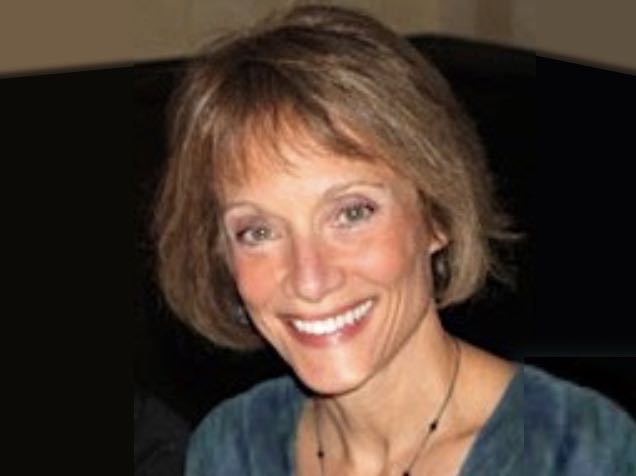
By Betsy Brenneman, Preschool Development Grant Coordinator
“We need to get Head Start back in our community.”
“A basic definition of kindergarten readiness is needed.”
“More money is needed for pre-K grants.”
“Universal pre-K! Statewide.”
“We need a plan to grow our own teachers and their pay.”
Those were just a few of the comments from AASB members during last month’s annual conference in Anchorage at a working lunch and snapshot sessions focused on early childhood care and education in Alaska. They echoed what AASB members identified as needs at an early childhood lunch conversation in April at AASB’s Spring Academy in Juneau. Participants strongly expressed the need in their communities for more accessible, affordable and high-quality early learning programs to prepare children for school and for more engagement with families of young children.
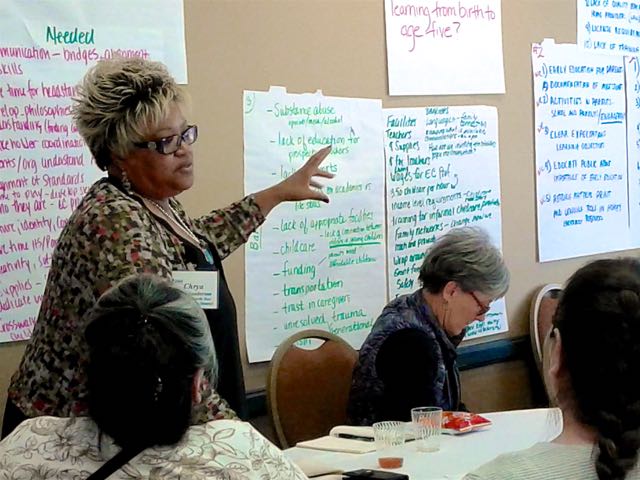
A growing body of research confirms the significance of child care and early learning on the long-term outcomes for children and for their children. Just this past May, Nobel-winner James Heckman released new results of a long-term study of children now in their mid-50s, who attended an intensive Michigan pre-school, showing they went on to lead more stable lives than a control group of peers who were not enrolled. As adults, those who were enrolled continue to be more socially adept, healthier and earn higher incomes than the control group. In addition, their children “may still live in the same high poverty neighborhoods, but they are more likely to be employed and married, they are better educated and they are less likely to have committed a crime,” said Heckman.
Since the beginning of the year, AASB has been working with many partners focused on improving the state’s early childhood care and education (ECE) system with funding from the Preschool Development Grant Birth-5 (PDG) awarded to Alaska’s Dept. of Education and Early Development (DEED) by the federal Administration for Children and Families. The grant provides an exciting opportunity to examine Alaska’s system by assessing current needs, developing a new statewide strategic plan, expanding resources to maximize parents’ choices and roles, sharing best practices for teachers and child care providers, and improving the overall quality of programs particularly for low-income, rural and vulnerable children and their families.
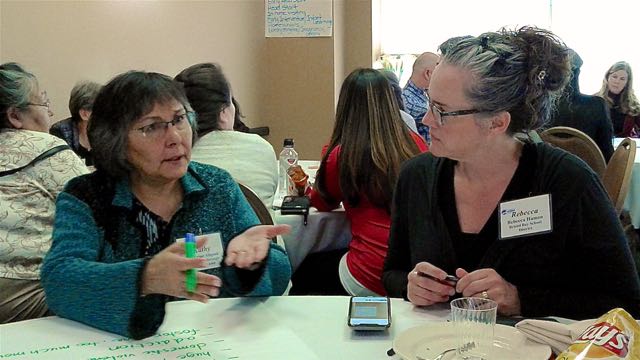
AASB’s primary role is to coordinate and manage the development of a statewide needs assessment of the early care and education system and coordinate the design and production of a new statewide strategic plan for the system.
To ensure there is collaboration throughout the process of developing the PDG needs assessment and strategic plan, AASB participates in the Early Childhood Joint Task Force (JTF) to align its work with two other major early childhood initiatives: the Impact Project awarded to the Alaska Dept. of Health and Social Services Childcare Program Office to help Alaska’s Early Childhood Coordinating Council plan and develop its capacity to implement the state’s early childhood priorities; and Indigenous Project LAUNCH awarded to Southcentral Foundation to create prevention and promotion strategies to give Alaska Native/American Indian children the social, emotional, cognitive and physical skills they need to succeed.
“A Needs Assessment for Alaska’s Mixed-Delivery System of Early Childhood Care and Education” will be completed by the end of the year by the McDowell Group with feedback from more than 200 early childhood and education providers, families and school board members across the state.
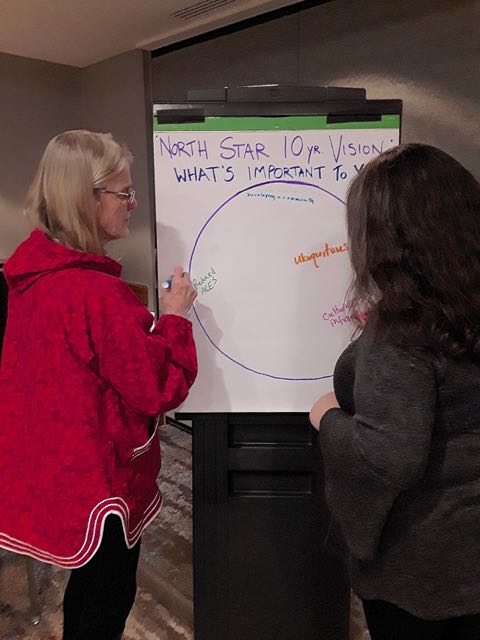
Some draft findings of the needs assessment, as guided by PDG requirements show:
- There are 61,900 children in Alaska ages birth to five. Of that total, an estimated 47,000 (75%) are in need of child care or pre-elementary services because all available adults in their households are in the workforce; at least 10,000 are vulnerable or disadvantaged and 11,500 live in rural areas.
- The definitions of quality and high-quality early education programs and kindergarten readiness are not agreed upon.
- Alaska families spend an average of 12% of median income in two-parent households and 34% of median income for single-mother households on child care services, while the national recommendation for affordable child care is no more than 7% of family income.
- 22% of Alaska households with children birth through 5 years of age say they would work or work more hours if child care were available.
- Professional development and training opportunities for early childhood workers are scarce or not targeted to meet actual needs.
- Child care and preschool jobs are among the lowest paid in the Alaska economy and below the U.S. average for the sector in terms of purchasing power.
- Information on supports for transitions from pre-K to kindergarten is limited and consistent funding for supports like substitute teachers is challenging to get.
- Factors such as transportation, health care, and mental health care make it difficult for families to enroll their children in early education and child care programs and make sure they attend.
- Efficiency, effectiveness, and collaboration in Alaska’s early childhood care and education system are difficult to achieve due to inconsistent funding, Alaska’s geography, and challenges to coordination among governing bodies.
These findings and others will be guiding the next phase of work to develop an early childhood strategic plan to be completed by April 30, 2020.
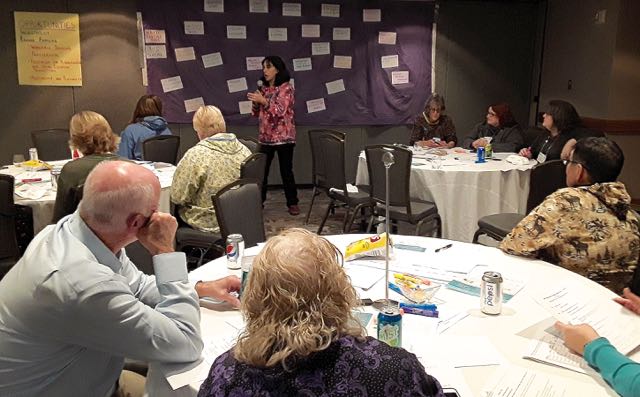
Stakeholder engagement sessions for the strategic plan began with Joint Task Force members in October and early November. AASB members provided input in November at AASB’s Annual Conference. A December site visit is scheduled in Kodiak with families, school district personnel and those working in early childhood programs. More site visits are planned for Bethel, Nome and other communities around the state, and all of the suggestions and information gathered will shape the strategic planning process and guide strategic plan recommendations.
If you would like to be kept informed about AASB’s early childhood PDG work and if and when there will be strategic plan site visits in your area, contact Betsy Brenneman, Preschool Development Grant Coordinator at AASB bbrenneman@aasb.org. There is also information on the PDG Resources page on AASB’s website at https://aasb.org/preschool-development-grant-resources/
# # #
